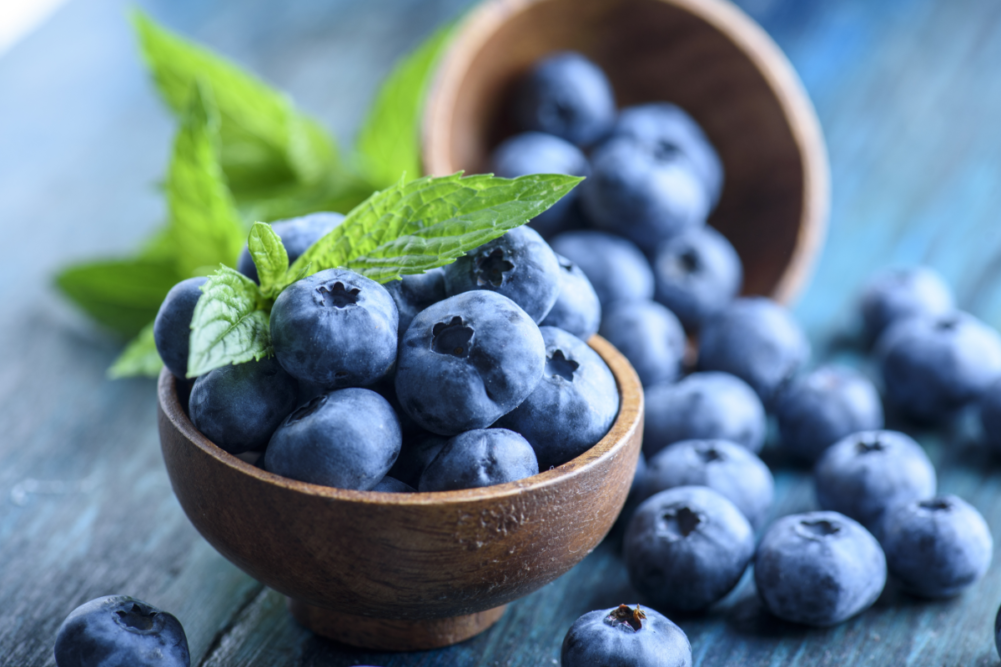FOLSOM, CALIF. - A new study conducted at the Stratton Veterans Affairs Medical Center in Albany, N.Y., found that one cup of fresh blueberries resulted in significant improvements in Hemoglobin A1c (HbA1c) and fructosamine—measurable indicators of type 2 diabetes.
The two indicators measure glycemic control in those living with diabetes with HbA1c levels providing insight on long-term glycemic control and fructosamine giving information on average blood glucose levels over two-to-three-week periods.
Over an eight-week period the study examined 52 overweight male participants between the ages of 51 and 75 who had been diagnosed with type 2 diabetes for at least six months. Through the course of the study all participants prescribed non-insulin diabetes medications and did no heavy exercise.
Participants were either assigned 22 g of freeze-dried blueberries (the equivalent of one U.S. cup/d fresh blueberries) along with their regular diet; or 22 g of a placebo powder (matched in energy and carbohydrate content to the freeze-dried blueberries) along with their regular diet.
The results showed decreased levels of serum triglycerides after blueberry consumption compared to the placebo. Left untreated or uncontrolled, elevated blood triglyceride levels increase the risk of serious complications such as cardiovascular disease – the leading cause of morbidity and mortality for individuals with diabetes.
“To date few human clinical trials have evaluated the potential beneficial health effects of blueberries in populations with type 2 diabetes,” said Kim Stote, who has a research appointment at the Albany Stratton VA Medical Center and is the study’s lead investigator. “While the results cannot be generalized to all populations, they point to the evidence that a dietary intervention with a realistic serving of blueberries may be an effective strategy to improve metabolic factors associated with type 2 diabetes.”
The research was funded by the US Highbush Blueberry Council. The council had no role in study design, data collection, data analysis, data interpretation or writing of the study.

